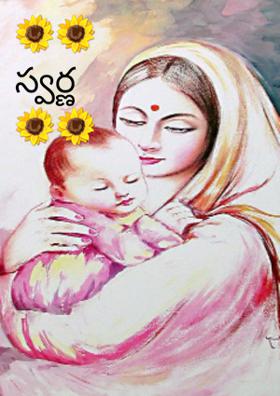The Mysterious Playwright
The Mysterious Playwright


Circa 1780
Ila , a girl from a farming family from village Kaithal in erstwhile Maratha, lived in a world of dreams. She often wondered about life and nature.
Surely, there should be more to life than the routine of getting up, plowing, weeding, bickering, eating and sleeping. Surely there is a higher purpose of life.
Ila was an anomaly in the herd of people at Kaithal. Her curiosity and her insatiable appetite for knowledge had made her an outcast.
Ila loved spending time with nature and was often found never near the river bank.
The river looked majestic and dignified.; Tthe wind was pleasant and carried the scent from the flowers. The trees on the bank were swaying as if laughing heartily. The birds were chirping.
Ilaa closed her eyes and tried to imbibe the beauty.
Oh, if she had her quill and a paper here, she would put down this beauty on paper in words.
Ilaa rose up. It was getting late; her folks would be looking for her. Ilaa passed through the fields and saw the happy faces of her brethren people. She stood still and contemplated for a moment. If only she could be happy and content like them, it would be so much easier.
Was she indeed an anomaly? Why did she demand more from life? What was the fire burning inside her to do something with her life? Couldn't she be like her sisters who were happy with the finery of clothes and jewellery?
Alas, happiness means different things to different people.
Ila was indeed different. Unlike the other girls, her curiosity had not been nipped in the bud. In fact, it was nurtured carefully. After her mother died in at childbirth, the newborn baby Ilaa was brought up her at by her maternal grandparent's mother place. Ilaa''s late grandfather was a fond collector of books. He maintained a library with books from all over India: Vedas, Puranas, books on arithmetic and science. Ilaas grandparents were influenced by the Bhakti wave that had hit their land and were ardent followers of 13th century saint siblings: Nivruttinath, Jñāneśvar, Sopan, and Muktibai. They believed that knowledge was for everybody: men and women, of all classes and creed.
Ila had ready access to books and she was a voracious reader. She had analyzed the Vedas and was well versed in Sanskrit as well as the other vernacular languages. Plays by Kalidas and Sudraka interested her immensely. Natya-shastra intrigued her.
Each year, Ila was called back home during the harvest period. Her visits back home were dull. She did not relate to most of her cousins and siblings. She had no interest in speculating about who had an upper hand at the common kitchen or who owned more gold. Only respite was his brother Suparn, who was carrying out research on ayurvedic text Ccharak-Ssanhmita. There were many contradictions in the text which he was trying to understand. He often discussed these with Ilaa.
IIa admired his passion and wondered if she would be given a chance to pursue her passion.
When the girls of her age played with dolls, Ila wrote her first piece of prose. She continued writing pieces. She developed characters and plots and wrote drafts for what she thought would someday be published and practiced as pPlays.
She intimated her aspirations in her granny, her Aji.
Aji gave out a sigh and said Its fine dear. But it is of no use.
Why Aji?
Women don't write.
But Muktabai did.
That was different. She was a saint. She wrote hymns to the lord.
Do you think the other forms of art are any less than worship? A dancer gives everything to her dance, a singer discovers his soul through his singing. Art in any form is complete devotion.
Why plays?
A play is so much more than prose or poetry. It may be read and enjoyed or seen and enjoyed. I would write plays based on my interpretation of the stories from ancient scriptures.
That could be heretic. To interpret texts
Why? Eknath wrote his versions of Ramayana and The Bhagavat Gitaa. Tulsidas wrote Ramcharitmanas. They took artistic licenses. The episode of Kavet, the boatman in Ramcharitmanas, so beautifully written, is actually not there in Valmikis Ramayana. It may be based on folk tales. Valmiki Ramayana does not profess Rama's divinity, but Tulsidass work is a piece of devotion to the divinity of Ram.
But Tulsidas had struggled a lot; initially, he received a lot of flak from society.
Everyone struggles for happiness. Tulsidas wrote Ramcharitmanas for swantay-sukhay (happiness of self/soul), and never mentioned that his work be considered a religious doctrine. And yet Aji, it is the most beautiful book which I am sure would be the most followed in days to come.
Oh, Let me write for my happiness, and for the happiness and beauty it would bring in the lives of those would read it. There is a storm of ideas in my mind. I need to put them down or I would find no peace.
Alright, Do it if you must. But be discreet.
Why? I am doing no harm.
Aji did not reply, neither did Ila pursue her for a reply. For now, her acquiescence was enough.
However, she had questions. Suparn is not discreet when studying. Janak, the neighborhood architect is not discreet while designing. Why has she to be discreet? Is that because she is a woman? Is a woman any lesser than a man?
Different, yes. But not weaker. Men have more physical strength, but then, women have the strength of endurance and will power. Both have a perspective to life which may be different but that does not mean that the right to learn, think or compose something new belongs only to men. Ila thought wondered if she would have to be born again as a man to achieve what she yearns for in this life.
That night, Ila lied down with her head in her Ajis lap and said Aji, you once told me the story of Ila, the son of Manu who was cursed to be a woman every alternate month. Is it a curse to be a woman?
No dear. However, it is a curse to be forcefully converted to anything other than what you are.
That night Ila dreamt about the cursed Ila in her female form. She was beautiful and was smiling confidently. Then she saw Draupadi with her unkempt hair and loose saree fearlessly questioning the elders at Dhritrastras court about the right of her husband to place her on stake. Next, she saw Savitri following Yama diligently. Then she drifted into a deep and dreamless sleep.
Ila started composing her play on Savitri Satyavan. She described the beauty of the Kingdom of Madra. She composed the monologue of the King Asvapati about concerns about her only daughter decided to marry a prince in exile. She wrote a dialogue between Savitri and Yama, which reflected Savitris intellect and wit. For days altogether she was lost in the play.
It was time for harvest and Ilaa was called back home.
On her way, she found a little girl sculpting a stone, chisel in hand. She was deft. Ila was impressed. She saw Janak the sculptor-architect approaching them along with a teenage boy.
Ila exclaimed to him. Isn't she your daughter? Oh, she is so good.
Janak remarked She is good. But it is of no use.
No use. The words echoed in Ilaas mind. Those were the same words she had heard from Aji about her writing.
However,” he continued, pointing to the teenage boy, I will teach my nephew. He will carry forward my legacy. It is a pity that he is more interested in music.
Ila looked at the girl and then at the boy. For a moment she felt a deep sense of pity for both. The poor boy would rather be a musician but would carry the burden of carrying forward his uncles legacy while the girl who wants to do it desperately would get no chance.
It is a curse to be forcefully converted to anything other than what you are.
Ilaa missed writing at home. The fear of being discovered kept her from writing. However, one day she heard her father Vasava scream.
What is this? In his hand was Ilaa''s unfinished manuscript. He tore apart a page and crushed it. It was the page where the lovelorn maiden Savitri describes Satayan to her friend and elaborates her longing for him.
A play I had been composing.
It is inappropriate for young girls to write such literature.
Ila had expected such a reaction. For her father, anything other than housework or breathing was inappropriate for young girls.
There is nothing inappropriate about a woman composing and sharing her ideas. The many women from Vedic period like Lopamudra, Gargi and Maiteryi did that. They enriched society. I would like to present my play to the Peshwa. I have heard that he is looking for an original Marathi play to present before the Bhosale ruler of Tanjore when he visits Parali.
You are on a wild goose chase. It’s time you get married and settle down. I will choose a suitable match for you.
If I marry, it would be to a person of my choice.
Vasava was aghast, A person of your choice?
Yes. There is nothing wrong with it. Swayamvars were organized in Vedic period to facilitate women to choose their husbands. I would marry a person who respects my passion for composing. However, I don't want to marry until I have composed a few significant plays.
Vasava spoke with emotion. Do you deny my authority?
You are a good father. I respect you. You have always taken care of the needs of your children. Father, writing is my passion, my need.
Fine. You can write but on the condition that your contribution to housework and harvesting should not diminish. Also, you would not submit your work until the village elders give their assent.
Vasava thought that the arrangement would dissuade Ilaa from writing. It was highly improbable that she would be able to do justice to her writing and her responsibilities towards housework and farming. But Ila was happy. The mundane tasks of cooking, cleaning, and weeding seemed more meaningful now. The process of writing made her happy and fulfilled.
Ilaa's piece was complete. Learned men from Kaithal went through it and passed their verdict.
The play was deemed fit for submission, however, it was not be submitted in Ilaas name but some male member of her family.
Ilaa could have taken the deal. But the image of the Janaks little girl, chisel in hand, haunted her. She would have to set an example. Or else the girls of Kaithal would never be able to pursue their passion.
I refuse. I will not let someone else take credit for my work.
One of the elders said: We don't want to bring unwanted attention to the women of Kaithal. Peshwa should not come to know that this is the work of a woman. The sequences you have written about love and passion would make the Peshwa think that our women are amoral.
It is a work of art. There is nothing amoral about it. Cried Ila.
Suddenly Suparn spoke up: The matter is settled. I will present the play to Peshwa. However, I would take Ilaa along. I don't understand the intricate details of the theatre. I would need her help to make any additions they suggest.
There was a look in Suparns eyes which that Ilaa deciphered and she agreed.
It was a month after Suparn and Ilaa had left for Parali and the village of Kaithal was in celebration. Ilaa, the state playwright of Parali would be arriving the next day to lay the foundation of the first school for girls at Kaithal.
Apparently, IIaa had submitted the play in the garb of a man. The play was selected and for the next few days, IIaa worked hard with the crew. She was Ilaa, a man during the day and a woman by the night. However, while she was working, she was neither a man nor a woman, she was nobody but a playwright.
The play was a huge success and the Peshwa announced that he wanted to specially congratulate the playwright.
Ilaa had come about in her true form stunning everyone.
The Peshwa had remarked, Lady, your play was very powerful. Never before has a play intrigued me so much. I commend your talent. As a token of my appreciation, I request you to ask for anything which I in my capacity as a Peshwa should be able to grant.
Ilaa had replied: Sir, I demand from you and your society, what was my right and had always belonged to me since ages, but somehow with time I forgot to demand it and you forgot to give it. I seek from you the right to learn, the right to question and the right to choose.
I may be interested in astronomy, architecture or medicine but none of the masters would take me, a woman under their tutelage. Could you help me learn?
I am a curious being. Curiosity brings questions. And answers bring change. I want the right to question norms, which are no longer valid.
I demand the right to choose without being judged harshly. If I choose to have a lover, I am tainted, but the man who makes love to me is not. If I choose to have a child out of wedlock, I would not be received in society but the man who fathered my child would be. When I choose to be a homemaker, I am dependent and naïve. When I choose to make a career I am selfish.
Cannot I be allowed to choose my own path, to make my own mistakes, learn and enrich from those? Can't I be respected for what I am?
Peshwa had said Your demand is legible. But it requires thousands of Ilaas and a few hundreds of Peshwas to fulfill it. I will do what is in my capacity. Ila of Kaithal, I appoint you the official Playwright of Parali. Go, create a thousand Ilaas who would follow their passion, question the norms and make their own destiny. Like you did.
Ilaa had smiled to herself.
Yes. There would be thousands of Ilaa's someday, freely following their dream























































